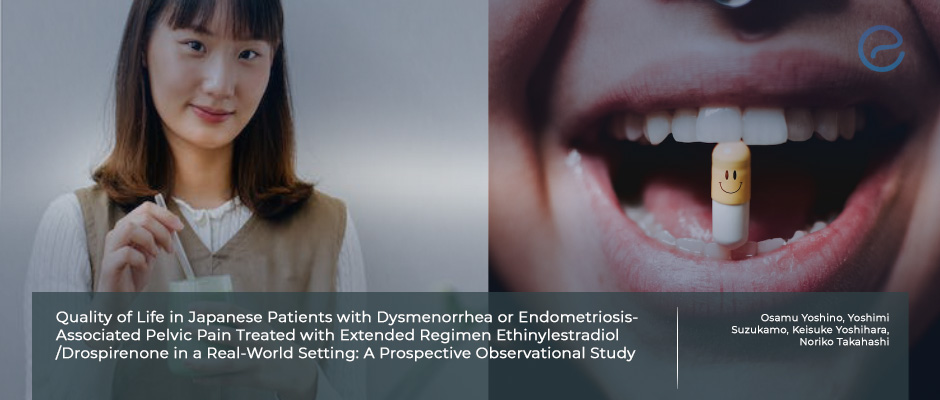Combined Birth Control Pills May Be Beneficial in Reducing Endometriosis Pain
Oct 5, 2022
This is according to the results of a clinical trial sponsored by Bayer.
Key Points
Highlights:
- Treatment with an extended regimen combined birth control pill can reduce endometriosis-associated pelvic pain and period pain and improve women’s health-related quality of life.
Importance:
- These findings underscore the importance of continuous treatment for the best outcomes, according to the authors.
What's done here:
- Researchers analyzed the effect of an extended regimen of ethinylestradiol and drospirenone on the health-related quality of life of women with endometriosis-associated pelvic pain and period pain.
Key results:
- Six months of treatment with an extended regimen of ethinylestradiol and drospirenone is linked to a decrease in mean menstrual distress questionnaire scores before and during a woman’s period.
- It was also associated with a significant improvement in the mean endometriosis impact scale domain scores and a slight increase in the mean European quality of life 5-dimensions 5-level. instrument scores.
Limitations:
- The study did not include a control group, so it is difficult to clearly establish the effectiveness of the treatment.
- Adherence to treatment was not monitored during the study.
Lay Summary
Treatment with an extended regimen of ethinylestradiol and drospirenone improves health-related quality of life, according to a new study conducted on Japanese women with painful periods or pelvic pain due to endometriosis. (Ethinylestradiol and drospirenone are medications that are widely used in birth control pills).
These findings are based on a clinical trial sponsored by Bayer that investigated the effect of the combined oral contraceptive of birth control pill, YazFlex.
The trial enrolled 577 patients, 262 of whom had endometriosis and 315 had painful periods, at many locations in Japan.
The primary objective was the number of treatment-emergent adverse events and adverse drug reactions. Secondary objectives included any change in periodic blood loss, compliance status in the new flexible regimen, days of bleeding in a month, number of days in which painkillers were used, and any change in the severity of pelvic pain, period pain, and quality of life.
The trial was completed on November 17, 2021.
According to results published in the scientific journal Advances in Therapy, the mean menstrual distress questionnaire scores before and during the women’s period decreased significantly after six months of YazFlex treatment. However, there was no improvement in the score after the period. Similarly, the mean endometriosis impact scale domain scores improved significantly after six months of YazFlex treatment.
The mean European quality of life 5-dimensions 5-level instrument scores also increased slightly during six months of YazFlex treatment. “These results suggest that an extended regimen of [ethinylestradiol and drospirenone] may be recommended for these latter patients when further improvement in HRQL is required,” the researcher wrote, “emphasizing the importance of continuous therapy to achieve optimal outcomes”.
YazFlex has been available to treat painful periods and/or pain associated with endometriosis since 2016 in Japan.
Research Source: https://pubmed.ncbi.nlm.nih.gov/36053449/
birth control pills contraceptive period pain pelvic plain health-related quality of life clinical trial Yazflex

